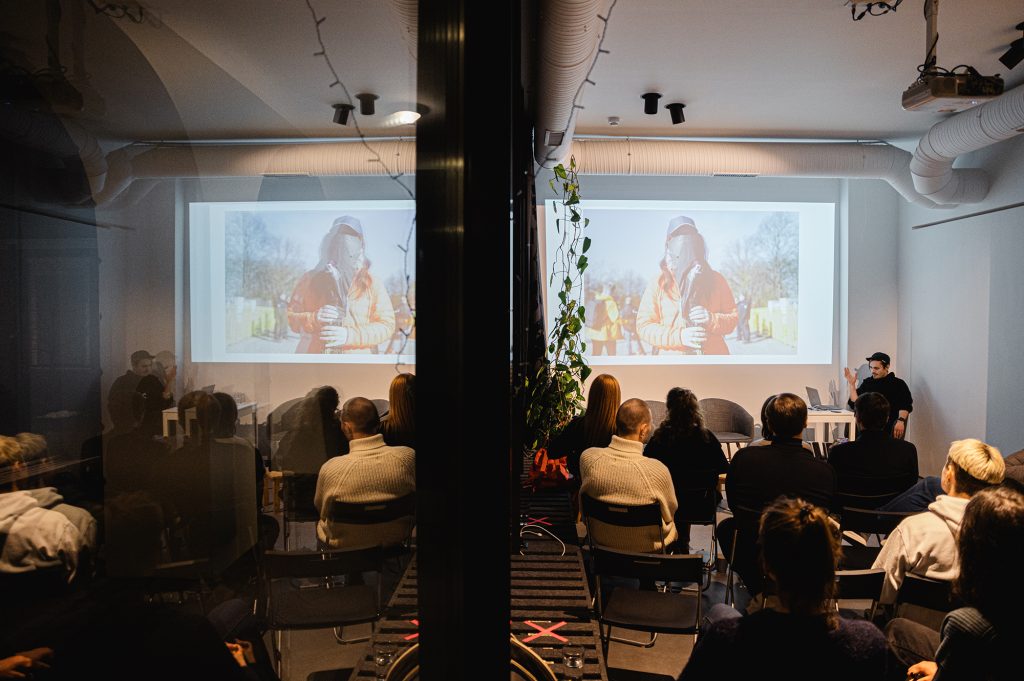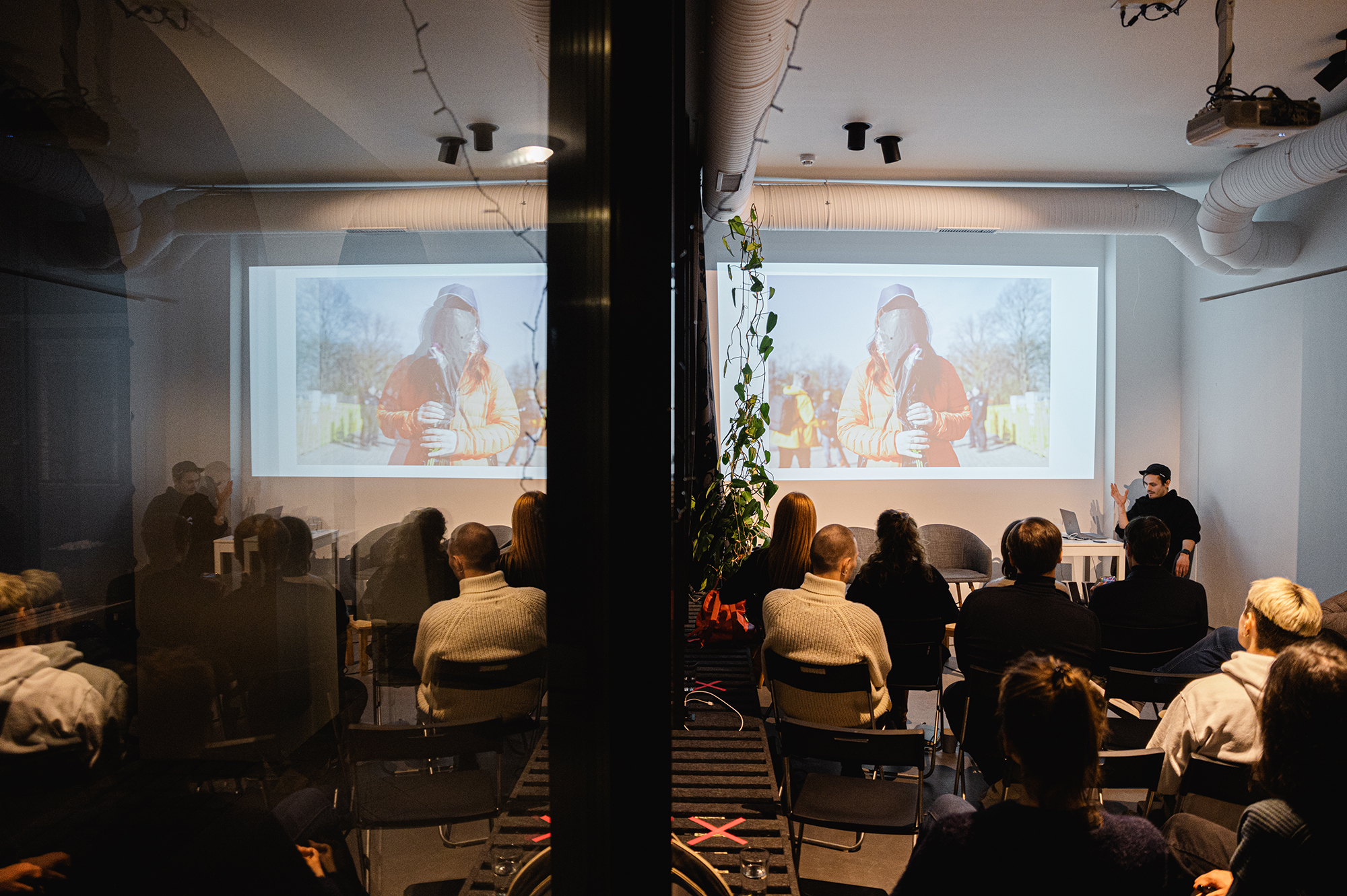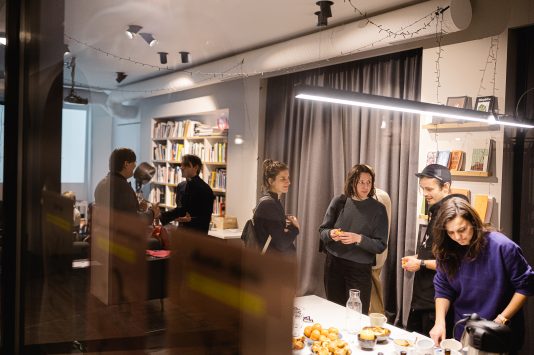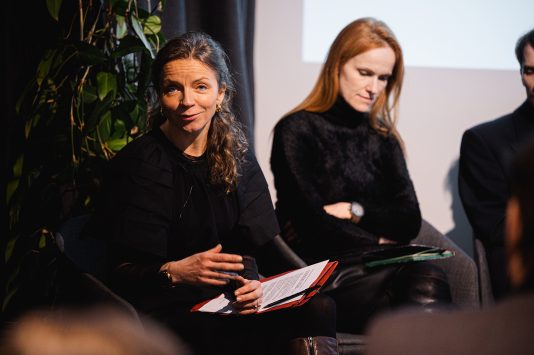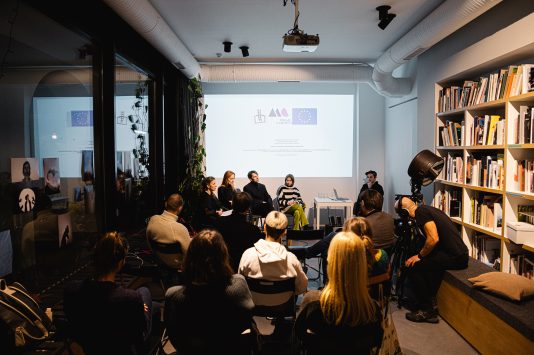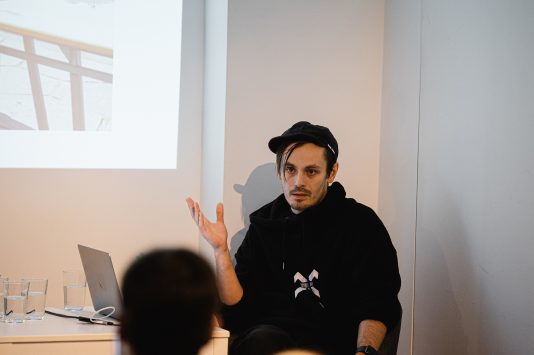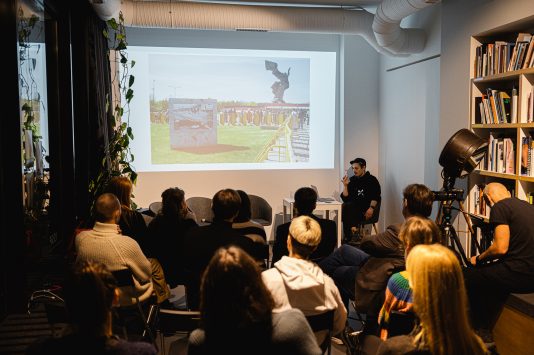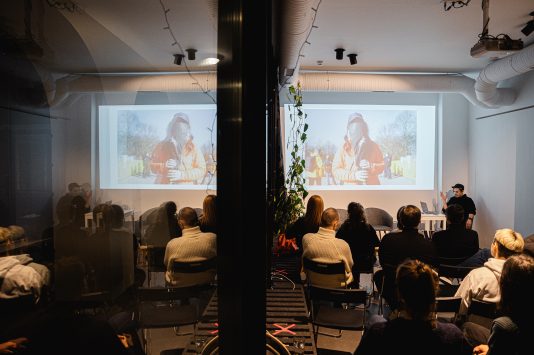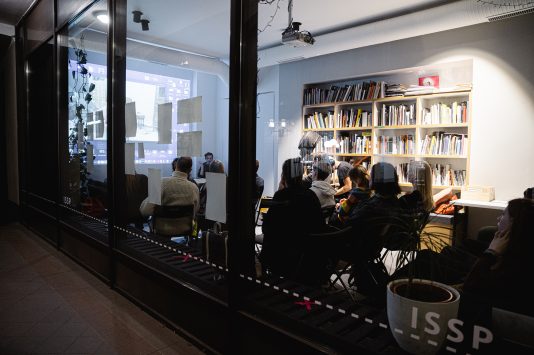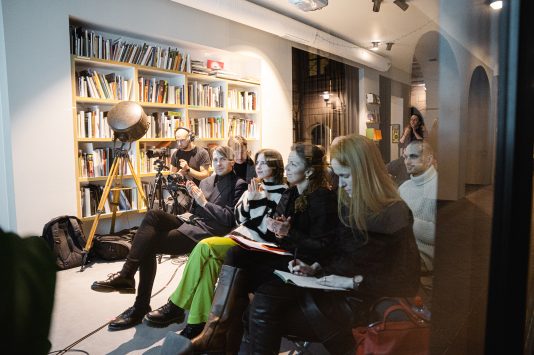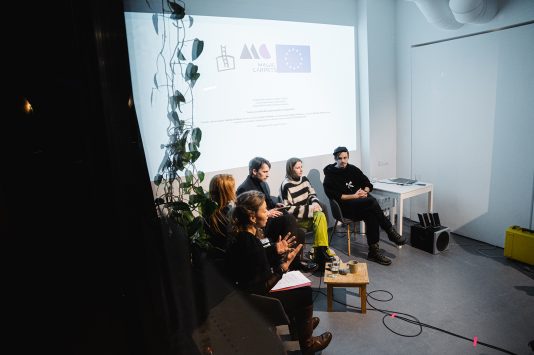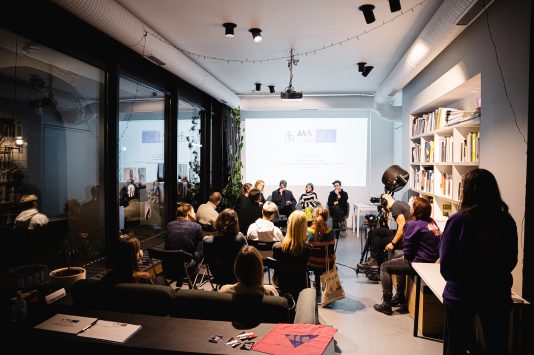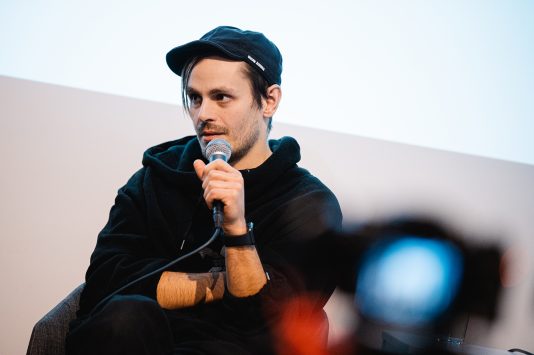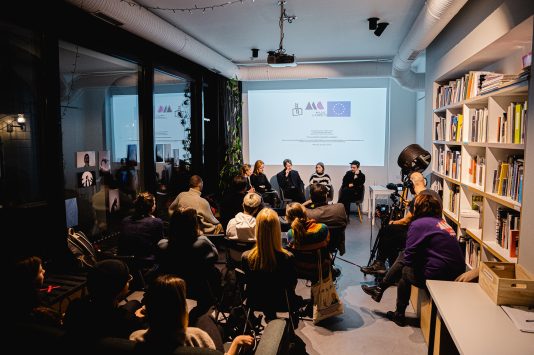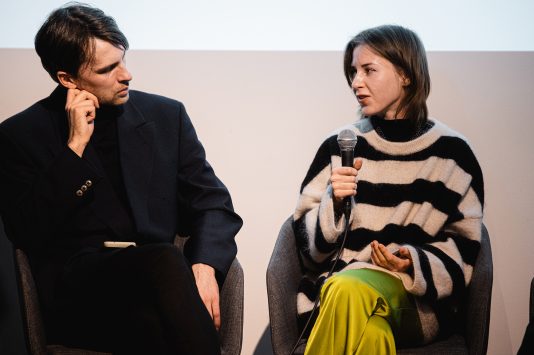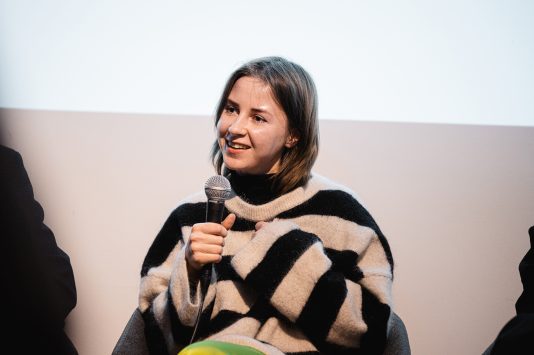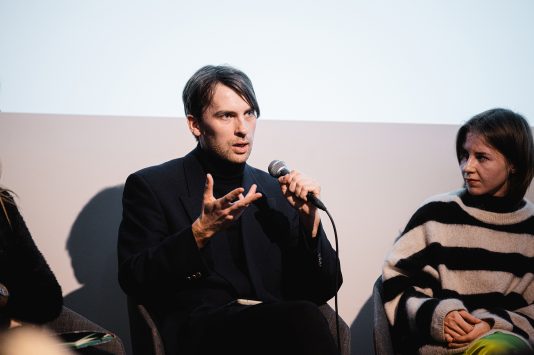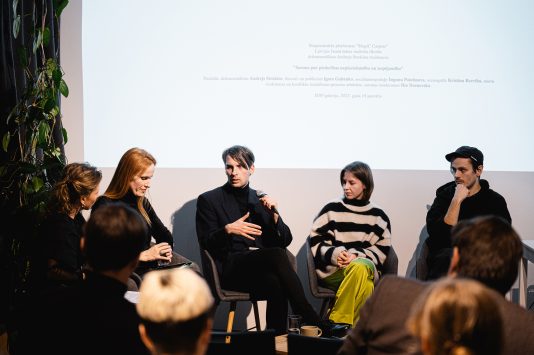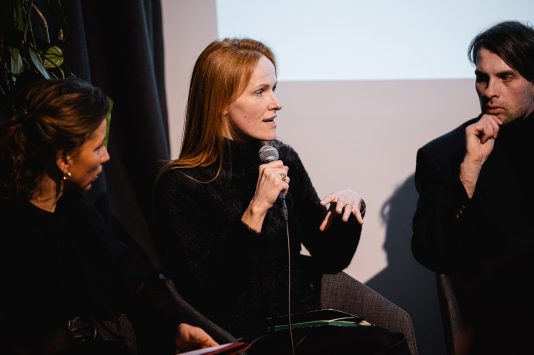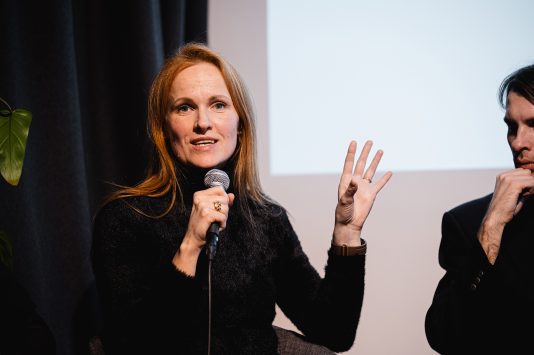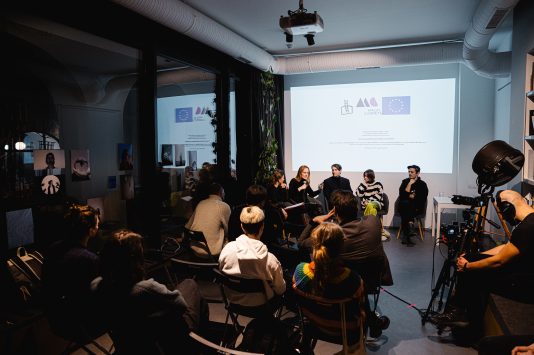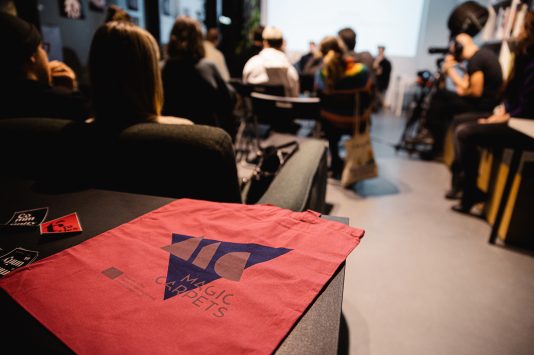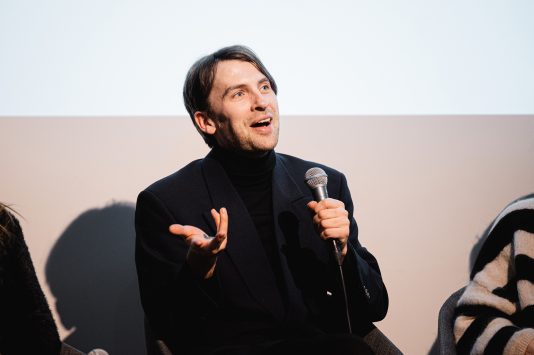New Theatre Institute of Latvia
MagiC Carpets, 2022/2023
Emerging curator – Linda Krūmiņa
Artists in residency – Andrejs Strokins, Necessity and possibility of belonging.
It would be quite naive and false for me to think that I am 100% Latvian. For sure, I have some German, Russian blood and by my appearance it seems like I also must have some southern relatives. But I am not sure what is making me more or less Latvian – my feelings, country of birth, country of residence, relatives, feelings, beliefs, language that I speak. I have always wondered about my belonging to some professional or peer group, but the belonging to my country always felt predetermined somehow. However, I am guessing it would become less clear, if I were living in different countries for a significant amount of time, if my family would be aware of our bloodlines and practice the inherited traditions, etc. No matter if we acknowledge it or not, there is also predetermined diversity that is embedded in each of us, no matter where we live and what language we speak. Diversity is rich and colourful yet also complex. Therefore, it requests an open mind, critical thinking and empathy. And that’s where the challenges arise.
Andrejs Strokins (b. 1984) is a Latvian photographer, living and working in Riga. He comes from a family that has Latvian, Polish and Russian-speaking roots. It has been both difficult and essential for Andrejs to re-examine and assess the multifaceted nature of his identity, its belonging to some community and history. When invited to MagiC Carpets residency to work with some communities in the suburbs of Riga, the artist’s attention was mainly focused on the experience of the younger generation who grew up in bilingual families and environments and receive most of their information from the social media. The artist was interested in the life of these young people, their thoughts on war in Ukraine and the feeling of identity in this time of history.
“I have Polish, Russian and Latvian roots, but now I feel more like part of the Ukrainian people. On the other hand, I feel ashamed of the presence of that little Russian particle in me. There is an urge to explore the feelings of others and to process personal experiences in the form of art or in a historical document,” says the artist.
In August, during his residence, Andrejs documented the demolition of a monument related to the Soviet occupation at Uzvaras park in Riga, which symbolically marked a defined boundary in relations to the “legacy” of the Soviet occupation’s past. In the fall of this year, the artist started to seek contact with young people who would be willing to share their stories about a misalignment of views among families or friends in connection to the war in Ukraine. However, the artist was confronted by unwillingness to share these stories: “The biggest surprise was that most Russian-speaking young people don’t want to share their stories. Partially I perceive that as a sense of shame and reluctance to irritate other family members. There are often completely opposite political views in the family, hence a different vision of Ukraine’s future, yet Ukraine’s future is also our future. It’s a rather trivial acknowledgment, but with every day, I acknowledge it even more.”
During the rest of the residency, Andrejs continued to work on the video material of the monument demolition and tried to find young people who would be ready to share their stories. We also felt that it’s important to talk about the questions that arise, but also about the impossibility of having these conversations – because people are scared, ashamed or sometimes because there is lack of interest to listen, lack of empathy.
On the evening of January 19th, Andrejs Strokins presented photographs and video material created during his residency. After that, a collective discussion was led by Ilze Dzenovska, an architect of peace-building and conflict settlement processes, with a publicist and philosopher Igor Gubenko, social anthropologist Inguna Potetinova, photographer Andrejs Strokins and scenographer Kristina Rezviha. Kristina was one of the people who was ready to share her story of search for belonging and identity in front of the camera.
Kristina grew up in Estonia, has a grandmother in Lithuania, currently lives in Latvia, and has just recently changed her alien passport and became a Latvian citizen. She claims she has done that in order to have the complete confidence that she is Latvian and she belongs here. She would need more reassurance from people around her.
Throughout the conversation, speakers confirmed that this reassurance from people requires for them to be empathic, but also to give empathy they need to feel safe and also willing to see beyond, or – between “black and white” statements, where something is completely good or completely bad. And that something that everyone agrees with is a common struggle in our society, for many reasons – interpretation of history, ways of dealing with the collective conflict and, of course, the ongoing war in Ukraine right now. It is easier and faster to operate in these “black and white” statements. But the reality of our world and relationships lies in the complexity and space between the binary thinking, where compassion, critical thinking and refusal to follow the leading hateful discourse inhabits.
What does belonging to an individual to some community and to the language group mean?
What creates the sense of belonging and what makes it difficult?
How are the belonging and identity constructed, how we can reconstruct it, or can we do it at all?
These and several other difficult and yet so important questions about belonging, identity and our common future were raised during the conversation. There were no easy answers, but the act of having these conversations in art works, in public the first year of the new three years period of the Magic Carpets residencies.
Curatorial text by Linda Krūmiņa
